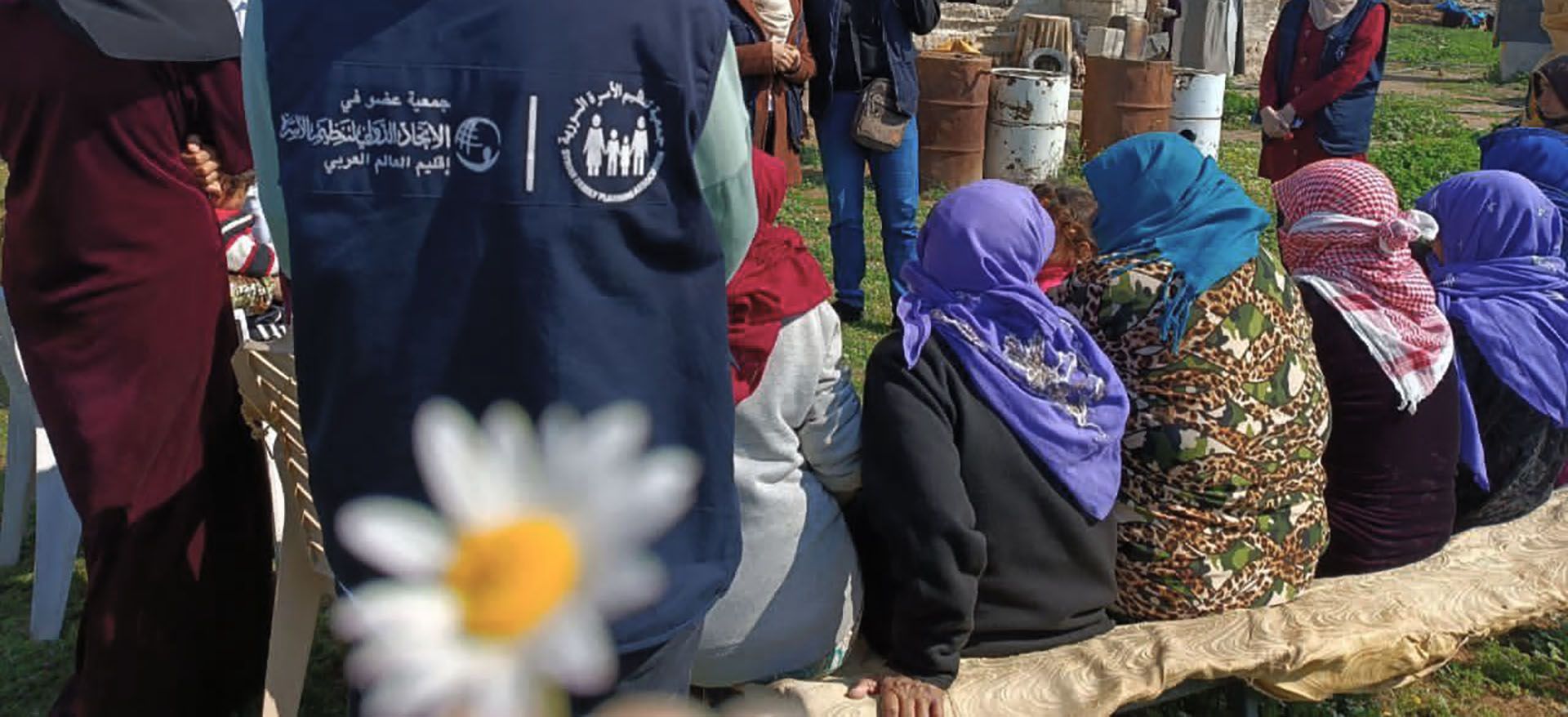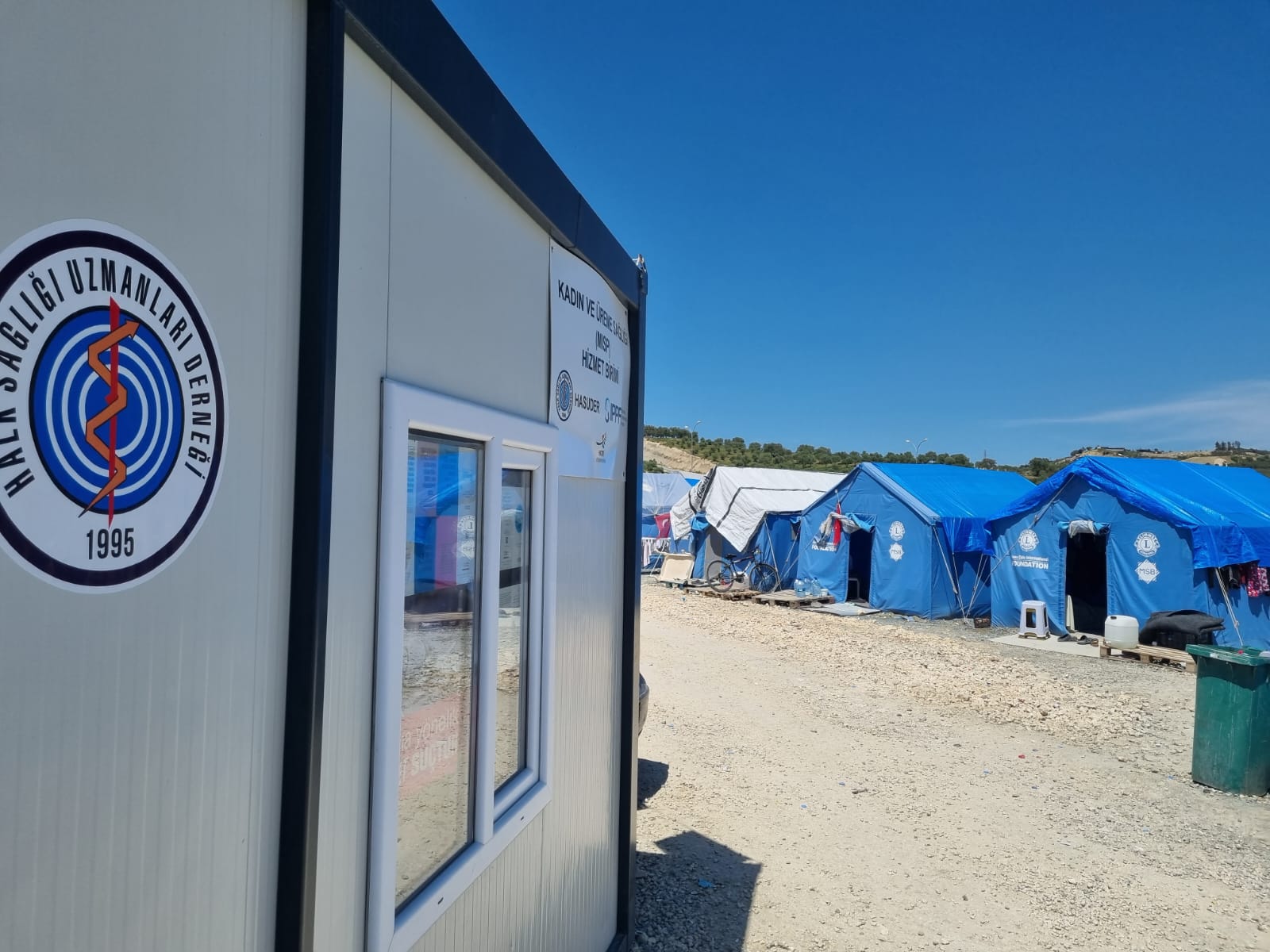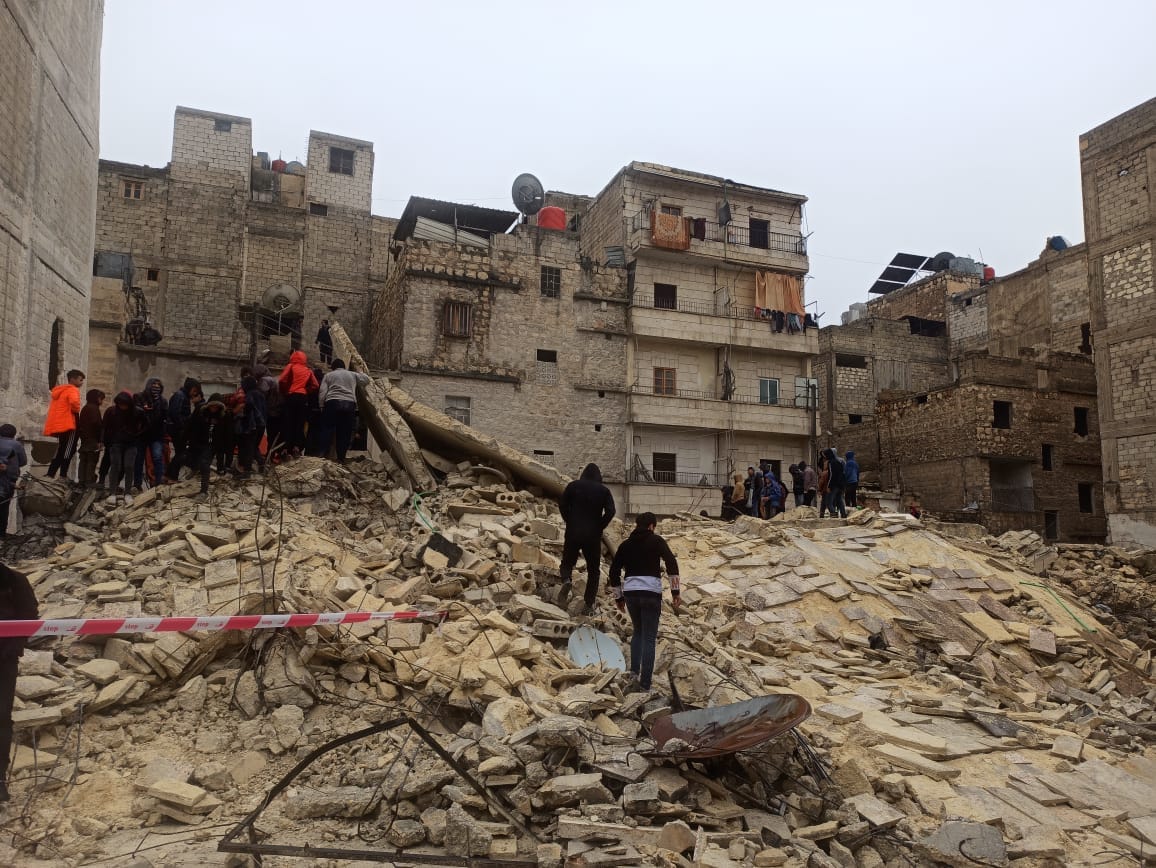Latest press releases
A selection of stories from across the Federation

Netherlands
Rutgers triumphs in landmark court case against lies, online hate and disinformation
Rutgers, the Netherlands’ leading sexual and reproductive health expert and IPPF’s Member Association, has today secured a landmark legal win against an ultra-conservative group.
For media enquiries


| 11 December 2024
We Must Protect Critical Sexual and Reproductive Health and Rights During Syria's Transition
IPPF remains steadfast in its commitment to supporting its Member Association, the Syrian Family Planning Association (SFPA), in providing essential SRHR services for all. Within the uncertainty and instability, we continue to work together with SFPA to empower communities, protect the rights of women and adolescents, and address the urgent needs of marginalized populations, particularly in the face of increased vulnerability. Our collective mission stands firm: we are committed to ensuring that dignity, health, and choice are accessible to all, regardless of political or social challenges. Even in these uncertain times, we believe that SRHR services must continue - because the need for family planning, maternal healthcare, and gender-based violence (GBV) support does not diminish, even in the midst of conflict. Syria is enduring a difficult period of transition, but sexual and reproductive health cannot be sidelined. The health and well-being of Syria’s most vulnerable populations, especially women and youth, remain a top priority. The work of SFPA is more essential than ever, as it continues to provide vital services such as family planning, postnatal care, and GBV screening. At Al-Hasakah, SFPA is on the frontlines, directly supporting over 5,000 people, the majority of whom are women in urgent need of reproductive healthcare services. These women face an increased risk of complications due to the lack of access to safe and comprehensive health services, but SFPA is committed to meeting their needs. From providing postnatal care to offering family planning options and GBV screenings, SFPA is ensuring that women in these vulnerable circumstances are not forgotten. SFPA’s clinics, such as the one in southern Daraa and the besieged Al-Waer in Homs, have become lifelines, serving as a beacon of hope for those in need. They provide up to 70 beneficiaries a day with crucial services, including health counselling and early marriage awareness. SFPA has faced significant challenges, including the seizing of vehicles and temporary clinic closures in the suburbs of Homs. Yet SFPA's perseverance in delivering SRHR services remains an essential lifeline for the people of Syria. We will continue to stand alongside SFPA in their tireless efforts to safeguard sexual and reproductive health rights, ensuring that every woman, adolescent, and marginalized person has access to the care they deserve. Together, we stand for dignity, health, and choice, even in the face of uncertainty. The challenges are great, but the importance of maintaining SRHR services is immeasurable. Through unwavering dedication, we can support those in need and contribute to a future where everyone has access to the care and rights they deserve. Contact: +44 7918 845944 Image credit: SFPA/Wasim Kashlan

| 13 June 2023
Unmet need for contraceptives quadruples in parts of earthquake-affected Türkiye
The unmet need for contraceptives is estimated to have soared to nearly 50% in some parts of Turkiye, including Hatay province, following the earthquakes on 6 February 2023. This is a worrying trend, as the unmet need had already been on the rise from 6% in 2013 to 12% in 2018 in Turkiye. The Association of Public Health Specialists (HASUDER), IPPF’s local partner in Türkiye, is the only provider of contraception in some camps for internally-displaced persons (IDPs) following the devastating 7.8 and 7.6 earthquakes that killed more than 50,000 people in Turkey and displaced millions. Professor Bülent Kılıç, head of HASUDER, said that while government services are mandated to deliver contraceptive supplies to health clinics inside IDP camps, services have generally focused on pregnancy and birth services. He said: ”Physicians who provide contraceptive methods, including inserting intrauterine devices (IUDs) are rare or fully absent. There is no awareness about this service gap.” Kılıç also describes serious hygiene problems for women in the camps, where basic needs such as clean toilets and bathrooms are not being met. Kılıç continued: “We have seen that contraceptive services are only provided in gynaecology clinics in hospitals, and even then it is offered very little and only if requested. This issue is related to the government's perspective on women and women's rights.” HASUDER’s reproductive health unit, which was established with support from IPPF and Hatay Municipality in Lions and Mersin Municipality Tent City in Hatay, has been providing sexual and reproductive health services to 3,000 people since March 2023. These services include maternal and neonatal care, contraceptive care, safe abortion care, and counselling for sexual and gender-based violence. HASUDER is providing contraceptive methods including intrauterine devices, oral contraceptives and condoms, but reports that underwear, sanitary pads, birth control pills, emergency contraception pills and condoms are still among the most needed items for women. HASUDER has also reported a rise in unplanned pregnancies due to the dearth of contraceptives available. Violence against women and girls - already a serious issue in Turkey - is exacerbated in every humanitarian emergency, and persists in the IDP camps. IPPF estimates that 3.9 million women of reproductive age, over 175,000 pregnant women, and more than 1.2 million adolescent girls (aged 10-19) were affected by the earthquakes in Türkiye. We anticipate more than 8,700 currently pregnant women will experience delivery complications. For media enquiries, please contact [email protected] or Nerida Williams, Senior Humanitarian Communications Advisor, [email protected] About the International Planned Parenthood Federation The International Planned Parenthood Federation (IPPF) is a global service provider and advocate of sexual and reproductive health and rights for all. For 70 years, IPPF, through its 118 Member Associations and seven partners, has delivered high-quality sexual and reproductive healthcare and helped advance sexual rights, especially for people with intersectional and diverse needs that are currently unmet. Our Member Associations and partners are independent organisations that are locally owned, which means the support and care they provide is informed by local expertise and context. We advocate for a world where people have the information they need to make informed decisions about their sexual health and bodies. We stand up and fight for sexual and reproductive rights and against those who seek to deny people their human right to bodily autonomy and freedom. We deliver care that is rooted in rights, respect, and dignity - no matter what.

| 09 February 2023
IPPF responds with SRH care to survivors of the earthquake in Syria
On Monday 6th February, catastrophic earthquakes hit Türkiye and Syria. Within hours, our local member association, the Syrian Family Planning Association (SFPA), was among the first responders assisting and evacuating people to safe shelter and accommodation in Syria. Dr. Lama Mouakea, Executive Director, Syrian Family Planning Association said: “In the aftermath of Monday’s earthquake, at least two hospitals have collapsed, three of our clinics have been damaged, and many health services have been disrupted. This will have an immediate, and dire, impact on women and girls. The catastrophic earthquake combined with the harsh winter makes our response even more critical. We have already sent mobile clinics to the areas affected to provide immediate healthcare.” Dr. Mouakea added: “Women and girls who are being moved into shelters in several areas, such as Aleppo and Idlib, may be subjected to violence or sexual abuse, so the medical and psycho-social service needs are great. We know of one devastating case of a mother giving birth to a baby while buried beneath rubble, who later sadly passed away. So getting pregnant women to safe spaces to deliver their babies is now essential. Our staff visit these areas continuously every week, so are already familiar with the communities and areas that are hardest hit. SFPA has been here before the earthquake providing humanitarian aid and will continue to serve these communities as they recover from this latest disaster.” Whilst also responding to other immediate needs, SFPA is ensuring sexual and reproductive healthcare is on the agenda as a critical component of the response, especially for women, girls and marginalized communities. Three in five preventable maternal deaths occur during natural disasters, and one in five women is likely to be pregnant during a crisis. Without access to reproductive healthcare, women and girls will suffer severe consequences, including miscarriage, premature labour, complications from unassisted deliveries and increased exposure to sexual and domestic violence, sexually transmitted infections, unintended pregnancy, unsafe abortion and even death. Julie Taft, Humanitarian Director, International Planned Parenthood Federation said: “IPPF is deeply saddened to hear of the news of the devastating earthquake in Türkiye and Syria. Our deepest condolences go out to the families who lost loved ones and whose homes were destroyed. Our member association in Syria has already started responding with mobile health clinics, and we stand ready to support the ongoing response efforts of our local partners in their delivery of vital, and lifesaving, sexual and reproductive healthcare to women, girls, and marginalized populations.” Twelve years of war and sanctions have left Syria’s infrastructure, including healthcare systems, battered. A crippling economic crisis has also driven humanitarian needs to record levels. SFPA has been responding throughout these interlinked crises ensuring continued sexual and reproductive healthcare services through their mobile and static clinics. Dr Alvaro Bermejo, Director-General of IPPF said: “It is amongst one of the most devastating natural disasters we have seen in recent times. The focus of all actors must be squarely on the needs of the people, particularly women and girls and those who are more vulnerable. It is not time to play geopolitics when women are giving birth amidst the devastation. It is time to focus on getting aid and support to where it is needed, now. It is not only the rubble that must be removed, but also any obstacle put in place by those in positions of power, locally, nationally or internationally.”
















